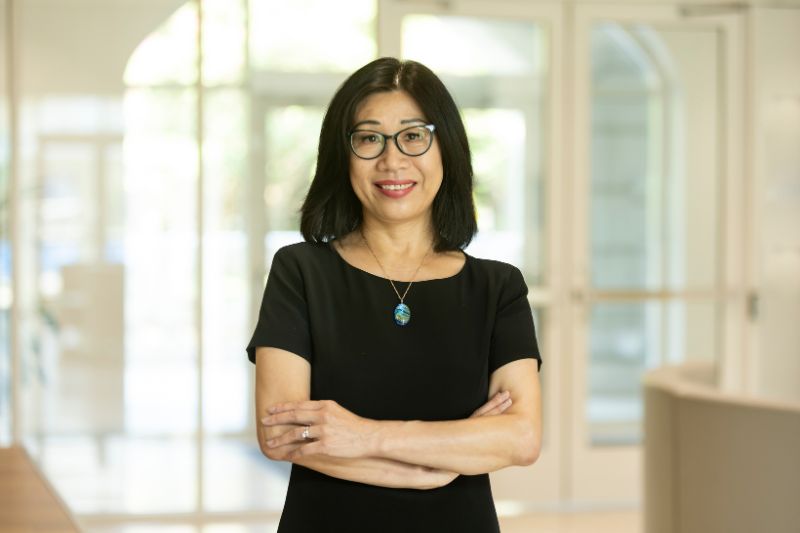SMU Prof to Use NSF Grant to Develop Game-Based Semiconductor Curriculum for High School Students
Innovative project aims to bridge knowledge gaps and inspire future semiconductor professionals.

DALLAS – The challenge is to connect the dots for high school students between the technology in their cell phones and the career options manufacturing the devices. To that end, the National Science Foundation (NSF) has awarded an Innovative Technology Experiences for Students and Teachers (ITEST) grant to SMU professor Lin Lipsmeyer and colleagues toward developing one of the first game-based semiconductor curricula for high school students.
The online game-based semiconductor curriculum will be made available to a wide range of students through a collaboration with Dallas-based gaming company Stemuli. Additional partners include Prabuddha Chakraborty at the University of Maine and Xiaoli Yang at Fairfield University. In addition to the game-based curriculum, the team will organize workshops, summer camps, and industry field trips for students.
These efforts aim to help high school students develop skills and career interests in semiconductor fields. The semiconductor curriculum will be designed and improved iteratively based on student’s feedback.
“High schoolers are among the most frequent users of electronic devices that require semiconductor chips, but how these devices are designed and manufactured is not commonly taught in schools,” said Lipsmeyer. “We will use this grant to address knowledge gaps and workforce needs equitably and incorporate an AI Educator program to provide additional assistance and insights to students.”
Lipsmeyer is chair of the Department of Teaching and Learning at SMU’s Simmons School of Education and Human Development and is the Simmons School’s liaison to the SMU-led Texoma Semiconductor Tech Hub. One of 31 tech hubs designated across the nation by the Biden administration, its goal is to bring semiconductor manufacturing jobs back to the North Texas/southern Oklahoma region over the next decade, and education will play a significant role in growing a technical workforce.
The grant to Lipsmeyer and partners is for 1.3 million for a period of four years. The NSF’s ITEST program is an applied research and development program that seeks to actualize a diverse future STEM (science, technology, engineering, and mathematics) and ICT (information and communication technologies) workforce that is prepared to meet pressing local, societal, and global challenges.
Any opinions, findings, conclusions, or recommendations expressed in this material are those of the authors and do not necessarily reflect the views of the National Science Foundation.
About SMU
SMU is the nationally ranked global research university in the dynamic city of Dallas. SMU’s alumni, faculty and more than 12,000 students in eight degree-granting schools demonstrate an entrepreneurial spirit as they lead change in their professions, communities and the world.